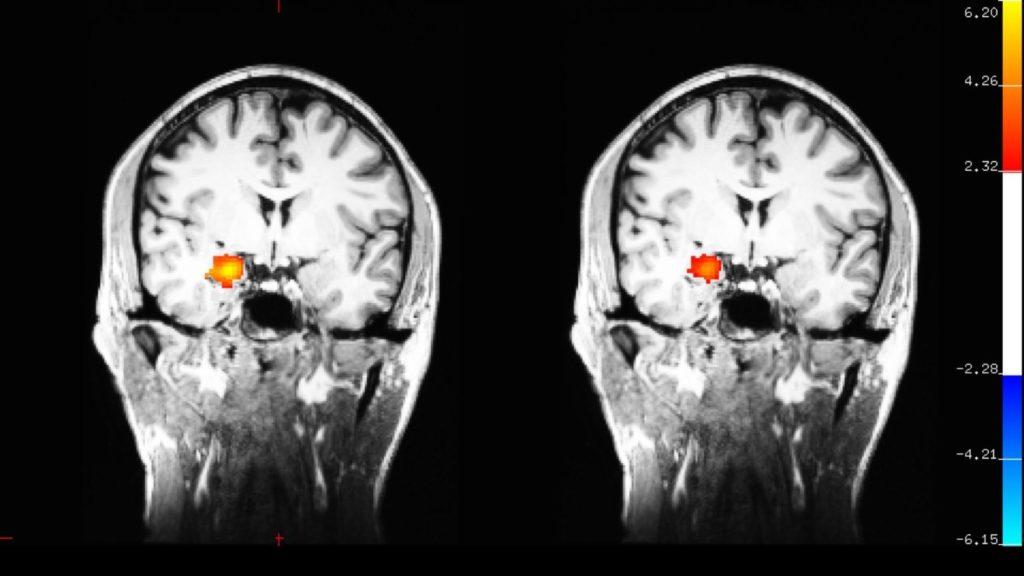Functional MRI (left) showing activation in the amygdala when participants were watching images with emotional content before learning meditation. After eight weeks of training in mindful attention meditation (right) note the amygdala is less activated after the meditation training.
Courtesy of Gaelle Desbordes
Mindfulness is linked to changes both in the brain and the body’s production of hormones and other chemicals that impact our physical health.
Scientists postulate that the development of mindfulness leads to non-judgemental and non-reactive acceptance of experience which is associated with positive psychological and physical outcomes.
HOW DOES MINDFULNESS CHANGE THE BRAIN?
There is significant research documenting changes in the brain associated with the practice of mindfulness.
Brain imaging studies have found eight brain regions which are consistently altered in meditators, including areas important for:
- Self awareness of thoughts and emotions (frontopolar cortex / BA 10)
- Body awareness (sensory cortices and insula)
- Memory (hippocampus)
- Self and emotion regulation (anterior and mid cingulate; orbitofrontal cortex)
- Communication between parts of the brain (superior longitudinal fasciculus; corpus callosum)
CONSISTENCY OF IMAGING STUDIES WITH OTHER RESEARCH
The mindfulness brain imaging studies are consistent with research that tracks participants’ perceptions of how they have changed, as well as research that looks at their behaviours or physiological measures, such as stress hormones and brain wave activity.
In addition, mindfulness is associated with changes in connections between regions in the brain. Specifically, the connections between the fear-responsive amygdala and the rest of the brain weaken, while those between the emotionally- regulating prefrontal cortex and the rest of the brain strengthened. In all, these changes suggest mindfulness lessens reactive and fearful responses and enhances thoughtful appraisal of events.
HOW DOES MINDFULNESS CHANGE THE BODY?
Mindfulness can induce the relaxation response. This response engages the parasympathetic nervous system, which is responsible for restoring the body to base levels (homeostasis) after a stress response, calming it down by lowering the heart and respiratory rate, blood pressure, and muscle tension.
Mindfulness is also associated with a reduction in other physical symptoms of stress, such as markers like C-reactive proteins, interleukin6 and cortisol.
This reduction is highly desirable, because physical symptoms of persistent stress are associated with an increased risk of serious diseases such as high blood pressure, heart irregularities, insomnia, persistent fatigue, digestive disorders, mental health issues, diminished fertility, and diabetes.

